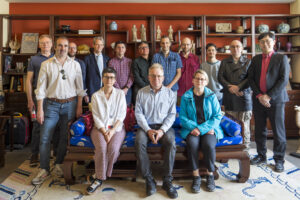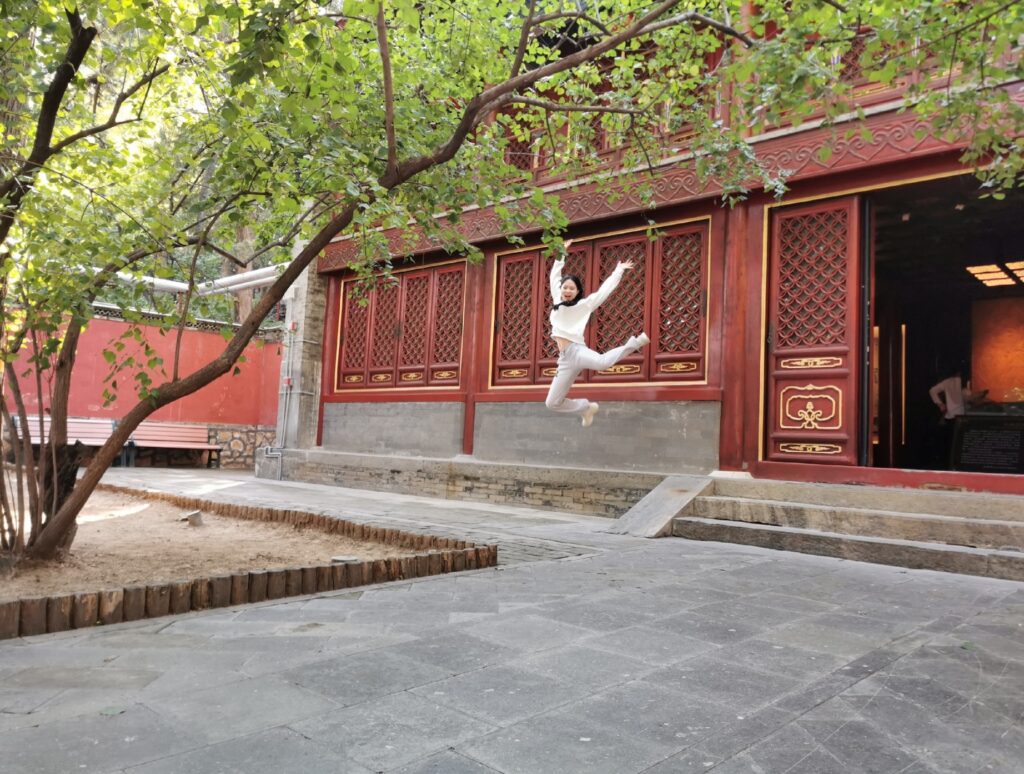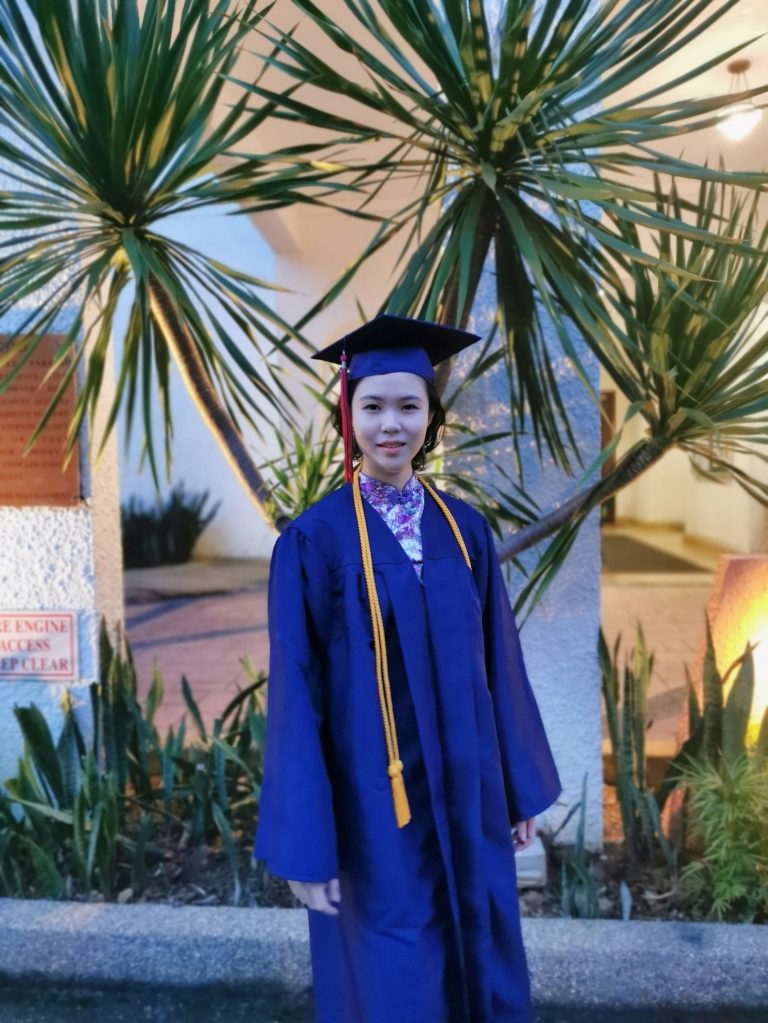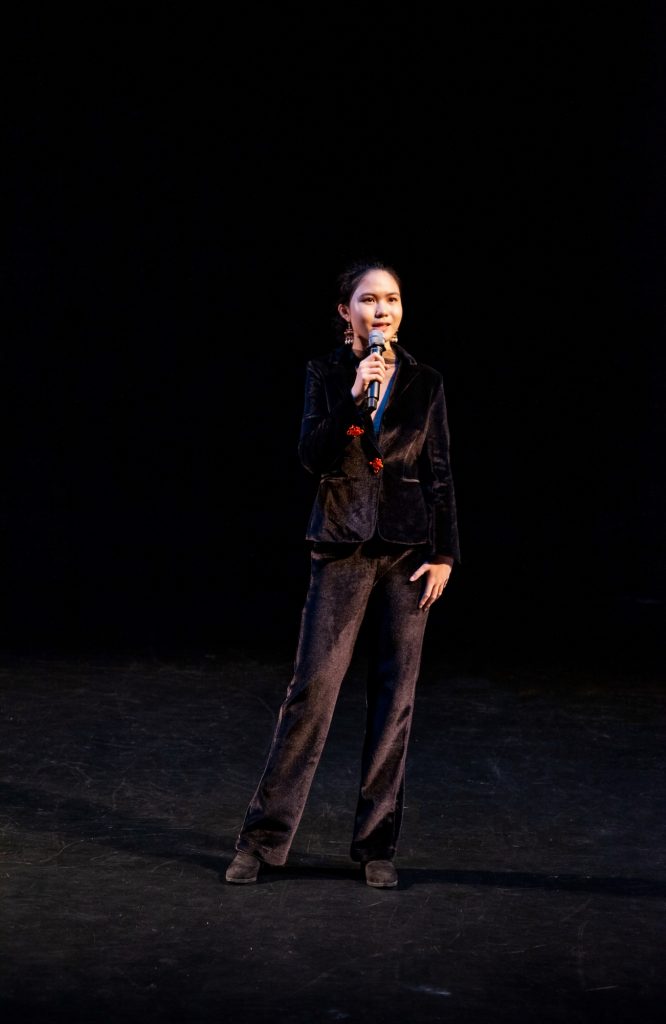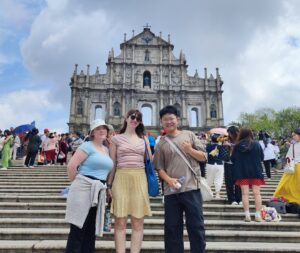Of course, with every study abroad experience, you gain something from it regardless of the location. What do you feel has been the most surprising or unique about being here in Beijing so far? Maybe something you didn’t expect or has surprised you.
The human to human behavior is very different in China – and I guess that can be interpreted both positively and negatively. When I am outside of China, I consider myself kind of a cultural representative. Still, when I come back to China, I start asking myself: perhaps the China I want it to be is not always the China that I am faced with – I mean this in a social sense. Every time I come back, I always think I should be doing things to improve the entire situation, but I know a lot of the time when people say things like this about China, they say it from a critical perspective. But, I say it from a place where I actually care about this place and want it to be better. A lot of the people I have come into contact with (not part of the local population), but kind of my group here – having been raised in more traditional Chinese backgrounds – I think there are things that frustrate me. I feel that cultural dissemination is a different category of frustration that I am feeling. The frustration that I feel is about things that I think people should be above, and in a way, I feel that if these things aren’t even dealt with, then how can we even move onto the next step of cultural dissemination.
So being in this situation and being in contact with students from a different cultural background has given emphasis to the difference in your cultural upbringing and values, and in turn, cultural dissemination.
Yes, in terms of my interactions with students from different cultural backgrounds. I am starting to realize that perhaps the type of cultural dissemination that I am doing isn’t necessarily in line with their goals.
On a lighter note, what has been your favorite part of the student experience here? There are still some constraints, but particularly because you are experiencing a less remote and more metropolitan academic environment.
I have grown up in major cities my whole life, so this is where I am comfortable. I did grow up in Singapore, and so I grew up eating Chinese food, but the food here is so good. All of my friends make fun of me because they think the food is bad. Apparently, the food on campus is for Beijing campuses – notorious for being bad. To me, it is ridiculous because I look forward to every meal every day. The food on campus is my favorite part.
You talked about your experience with students with different cultural backgrounds and as it relates to your diverse background. What do you feel that you are learning about yourself during this time? Not just in a singular sense, but more so, what are things you catch yourself discovering – perhaps a certain mindset or skill that has come to light.
There is a distance between wanting to do something and being able to do something. Everyone has their dreams and all, but the number of people who can actually do measurable things that will bring them there, the number of such people is significantly less. I think I am finding myself wondering if I am in that category – how much I am really willing to actively work towards things that I believe in—also, this idea of complexity. I think perspective is so important, and when I am outside of China, I consider myself so Chinese, and I am sure other people also consider me Chinese, but sometimes when you come back, and you realize that you are so distinct from everyone around you, does your definition of your nationality need to be changed or who you are, needs to be changed. I think complexity is a good thing for sure, but the process of realizing just how far we want to go to show everyone else that is a much heavier issue.
So you would say coming from Singapore with a diverse background this time has made you question your cultural identity and has perhaps challenged your perspective of how people view you and how you view your cultural identity?
I think less in the way of a challenge, but more has enhanced my understanding of my cultural identity because I think we all behave differently in different situations. Kind of the way I am behaving in this new environment is also teaching me about my cultural identity in different contexts as well, so in that sense, yes.
It seems you are studying abroad the right way – digging deep into yourself and the surrounding people and culture. That being said, why did you decide to study abroad at TBC?
The reason I chose TBC is because I actually like the courses offered. Some classmates say they are studying Chinese culture, and they feel like they don’t need to because they are Chinese students. I consider myself Chinese, but there are so many things that I don’t know about Chinese culture that some take for granted – by virtue of having been immersed in this environment their entire life. And so, I like the course selection, and I like that I can use this as an opportunity to learn about my culture, which I think is such an important part of understanding my identity. I think TBC really fit what I wanted at the time.
You brought up a crucial point here. People don’t usually consider studying their own culture further because they may see it as not the best use of their time; people usually intend to study another culture because it is outside of their familiarity, even though many people might not know their culture in its entirety.
I think cultural confidence is difficult if you don’t even know your culture. I grew up as the child of a wave of Chinese people who went for opportunities overseas. A lot of the time, people like me grow up and forget there are so many things that are worth knowing in their own culture as well. And so, I really don’t want to forget that.
